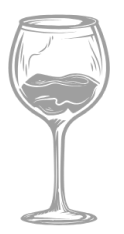Subscribe to our newsletter
Stay informed about all the latest news. Receive a preview..
Are you 18 years or older?
Sorry, our site cannot be visited by people whose age does not allow them to taste wine. Come back when you are older.
Also called amber wine , orange wine is a special type of wine that deserves some attention. Little known, orange wine is considered the fourth color of wine, after red wine, white wine and rosé wine.
Gérard Bertrand, as a lover of terroirs and wines with character, wishes to bring this historic wine back into fashion, thanks in particular to Orange Gold , an organically certified orange wine with a lovely freshness, light tannins and a subtle natural acidity.
Discover the organic wine Orange Gold Gérard Bertrand

If we were to give a simple definition of orange wine, we could say that it is a white wine vinified like a red wine. Indeed, just like white wine, orange wine is produced from white grapes.
The particularity of the conception of orange wine is that the grape juice is left in contact for a certain time with the skins, the seeds and the stalks (the framework of the bunch). During this maceration phase, the tannins concentrate and the characteristic amber yellow color of orange wine appears. Just like other types of wine, an orange wine can come from traditional, organic or biodynamic agriculture ( What is an organic wine? / What is a biodynamic wine? ).
The AB label and the Demeter label make it easy to identify the most environmentally friendly wines. These labels, guarantees of quality, are obtained after being certified and controlled by independent organizations, and make it possible to clearly identify wines that comply with the specifications of organic and biodynamic agriculture.
Discover all of our orange wines .

Something that is often overlooked is that orange wine is the very origin of wine. In fact, the first wines, which were probably orange wine , were produced in the Caucasus (the region separating Europe and Asia, between the Black Sea and the Caspian Sea), more than 8,000 years ago.
It is in Georgia, the cradle of viticulture, that we find the oldest traces of winemaking. The Georgian people thus left white wines to macerate and age in buried amphorae. This little historical point allows us to put an end to a preconceived idea: it was neither the Romans nor the Greeks who invented wine.

An orange wine is (even more so if it comes from organic or biodynamic farming) a wine of character, tannic, with very present aromas. Although each orange wine has its own characteristics, orange wines are distinguished by their subtle and complex structures while being balanced with a beautiful presence of tannins.
The color is bright and ranges from pale yellow to amber . One of the main characteristics of an orange wine is its freshness and slight acidity. Orange wine is a very dry wine , which allows it not to devote too much space to sugar and alcohol. Being categorized as a tannic wine, an orange wine can accompany an entire meal, from aperitif to dessert. Its specific taste can surprise (in a good way) lovers of more “classic” wines.
Compared to white wine (discover the Gérard Bertrand white wine collection ), which is the wine color that most resembles it, orange wine has more powerful aromas, while being more digestible . Possessing a beautiful natural acidity, orange wines are nevertheless less acidic than white wines. Finally, orange wines have, thanks to their high tannins, good aging potential.
Discover more explanations about the different types of wine:
Production of rosé wine : how is it made?
Rosé wine , the best rosé wine and Languedoc rosé wine
And to find out more about:
Stay informed about all the latest news. Receive a preview..


